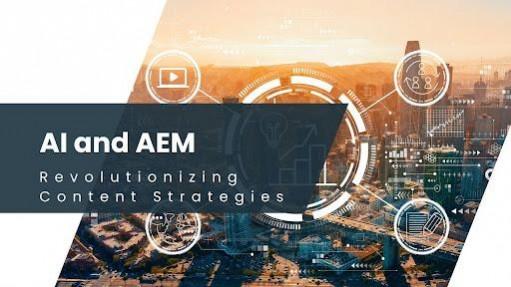
In an era marked by exponential digital growth, the integration of Artificial Intelligence (AI) into content management platforms like Adobe Experience Manager (AEM) is transforming the way organizations approach content creation and delivery. Bhanu Phanindra Babu Gogula, who has published extensively on AI-driven content innovations, introduces compelling strategies to leverage AI capabilities for streamlined and impactful content experiences.
The Evolution of Content Management
The content management industry has witnessed significant expansion, with market size projections increasing from $35.9 billion in 2022 to an anticipated $105.1 billion by 2028. This growth highlights the urgent need for companies to adopt advanced tools that meet consumer expectations for personalized and efficient content experiences. The integration of AI into AEM has proven essential, automating routine tasks while delivering tailor-made content across diverse channels.
Automating Tedious Content Tasks
AI in AEM transforms content management by automating routine processes, freeing resources for strategic efforts. Features like intelligent image tagging, which cuts tagging time by 70%, and smart cropping, optimizing content for various platforms, streamline workflows. This allows content teams to prioritize creativity and strategy. Moreover, AI-driven metadata generation and content summarization enhance SEO and discoverability, leading to a 35% boost in content findability and a 50% decrease in curation time, significantly improving overall efficiency and effectiveness.
Dynamic Personalization and Real-Time Adaptation
Modern consumers demand personalized experiences that adapt to their preferences. AI-driven dynamic content adaptation in AEM delivers real-time personalization and context-aware content, resulting in a 15% increase in customer engagement and a 10% boost in conversion rates. AI also enhances real-time A/B testing, adjusting content variations based on live data, leading to a 25% rise in engagement and conversions. Context-aware delivery further ensures relevance by considering factors like location, time of day, and user history, enhancing user experience significantly.
Advanced Analytics for Informed Decisions
AI-powered analytics are transforming content strategy with predictive insights and real-time tracking. Adobe Sensei, AEM's AI engine, enables marketers to forecast content performance and quickly detect anomalies, cutting response times and enhancing efficiency. Businesses using these analytics tools have achieved a 25% rise in conversion rates and reduced customer churn by 35%. AI also supports content gap analysis and semantic clustering, identifying high-demand topics and organizing content effectively. This has led to a 41% increase in engagement and improved page views while lowering bounce rates.
Predictive Content Delivery: Meeting Future Needs Today
AI in AEM enhances content personalization and predicts user behavior to deliver relevant experiences proactively. Techniques like user journey mapping, intent recognition, and propensity modeling have driven a 41% increase in customer engagement and a 38% boost in conversion rates. Companies using AI-powered journey mapping report a 23% improvement in retention. Propensity modeling forecasts user actions for better personalization, while intent recognition aligns content with user expectations. These strategies are vital for reducing bounce rates and fostering deeper engagement.
Orchestrating Seamless Cross-Channel Experiences
AI empowers AEM to deliver consistent, personalized content across platforms, meeting consumers' demand for seamless experiences. Through AI-driven cross-channel orchestration, organizations have boosted customer engagement by 45% and optimized campaign performance by 32%. AI also streamlines content repurposing, adapting material for various platforms, increasing content reach by 58% while lowering production costs. Additionally, omnichannel personalization ensures cohesive and engaging user experiences, resulting in a 35% increase in repeat purchase rates and a 30% reduction in customer churn, enhancing overall customer satisfaction.
To conclude, the future of content management lies in AI integration. Bhanu Phanindra Babu Gogula highlights that as AI technology advances, early adopters of AI-driven strategies will be well-positioned to boost engagement, efficiency, and growth. By 2025, with 80% of marketing analytics expected to be AI-powered, businesses embracing these innovations will thrive in the evolving digital marketplace.
















